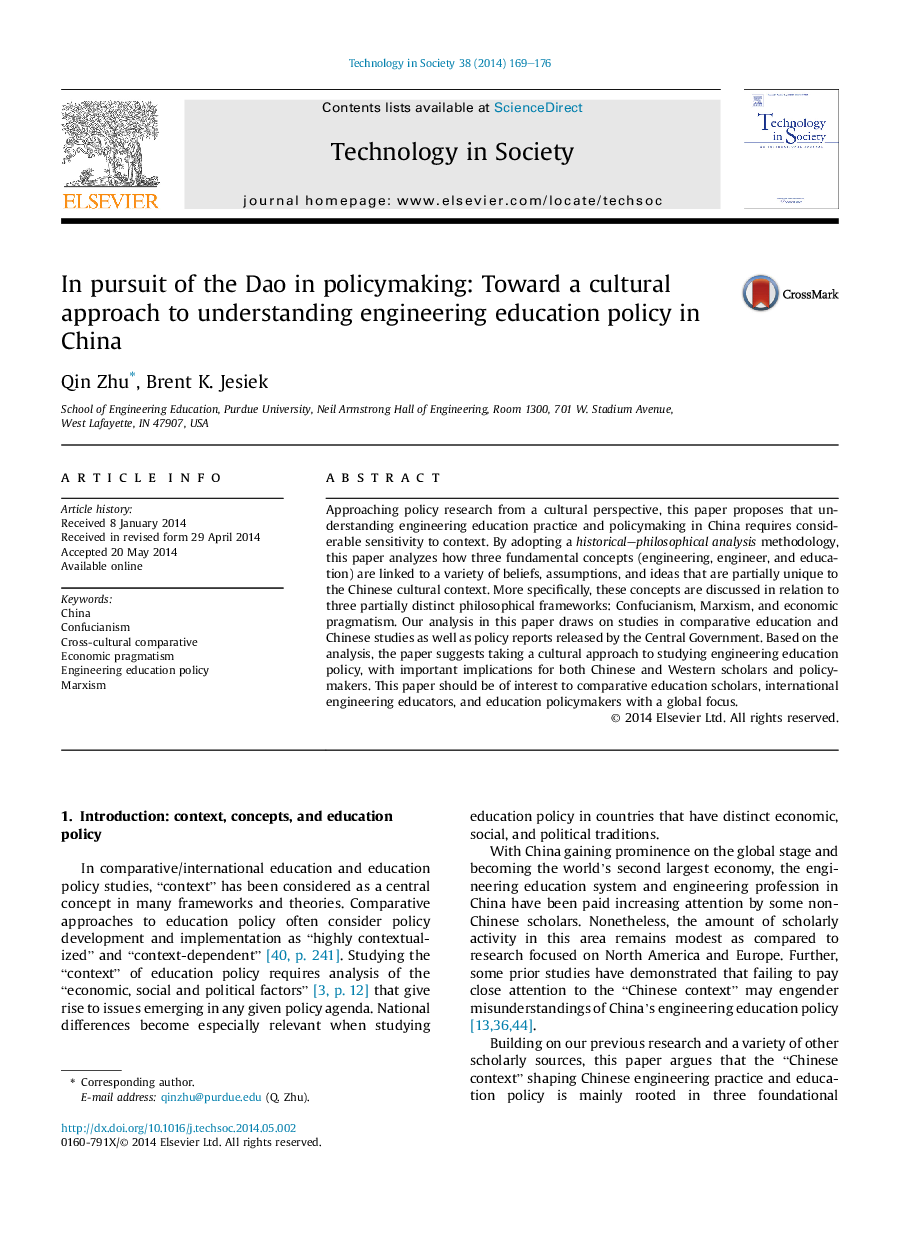| Article ID | Journal | Published Year | Pages | File Type |
|---|---|---|---|---|
| 6851721 | Technology in Society | 2014 | 8 Pages |
Abstract
Approaching policy research from a cultural perspective, this paper proposes that understanding engineering education practice and policymaking in China requires considerable sensitivity to context. By adopting a historical-philosophical analysis methodology, this paper analyzes how three fundamental concepts (engineering, engineer, and education) are linked to a variety of beliefs, assumptions, and ideas that are partially unique to the Chinese cultural context. More specifically, these concepts are discussed in relation to three partially distinct philosophical frameworks: Confucianism, Marxism, and economic pragmatism. Our analysis in this paper draws on studies in comparative education and Chinese studies as well as policy reports released by the Central Government. Based on the analysis, the paper suggests taking a cultural approach to studying engineering education policy, with important implications for both Chinese and Western scholars and policymakers. This paper should be of interest to comparative education scholars, international engineering educators, and education policymakers with a global focus.
Keywords
Related Topics
Social Sciences and Humanities
Business, Management and Accounting
Business and International Management
Authors
Qin Zhu, Brent K. Jesiek,
